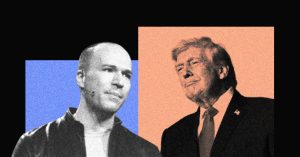A passionate marketer, CEO at iResearch Services, TechInformed & GivingforGood.
Thought leadership is like a compass, providing direction in an ever-complex business landscape. It guides audiences and helps them reach their destination.
However, to create a really successful thought leadership campaign, you need to understand human behavior and decision-making. This is where thought leadership (TL) and psychology intertwine. Learning about the mind and how audiences engage with content can help you create a killer thought leadership strategy.
Freud And Your Thought Leadership Strategy
Sigmund Freud was one of the most prolific and influential thinkers of the 20th century. As the father of psychoanalysis, he theorized about the unconscious mind and how it influences human behavior. One of Freud’s most popular theories, psychoanalytic theory, claims unconscious urges from childhood drive human behavior. The unconscious mind consists of instinctual desires (the id), rational thought patterns (the ego) and internalized morals inherited from childhood (the superego).
So how does this apply to thought leadership? Well, the unconscious mind makes quick judgments about TL content, such as blog posts, webinars, whitepapers, thought leadership videos and thought leadership podcasts. These thought patterns determine whether someone believes content is authoritative and credible.
Take a blog post written by your content marketing team that shares a unique perspective from your client. Someone who reads that blog might want to click on the irresistible call-to-action at the bottom of the post (the id), then rationalize whether the content is genuine and authoritative (the ego), and then judge the authenticity of the content based on their ethics and morals. These conflicting thought patterns might all happen at once.
The above example can go one of three ways, depending on the person reading the blog post. Someone might make an irrational decision, a rational decision or a decision based on their moral code. Either way, you can use these thought processes to your advantage when creating your thought leadership marketing strategy.
The Power Of The Unconscious Mind And A Thought Leader’s Voice
Like all marketing, successful thought leadership is all about psychology. If someone deems your content authentic and valuable, they might purchase a product from your client, subscribe to their social profiles or sign up for their mailing list. Someone who thinks your content is inauthentic and invaluable will likely click the “back” button on their browsers.
So how can you influence the unconscious mind in your TL campaigns? Start with storytelling, which can play on your audience’s emotions and convince them of their credibility. Companies like McKinsey & Company use the storytelling technique all the time, creating powerful narratives that evoke an emotional response in readers. This article about the metaverse leads you on a journey and engages your imagination. By the end of the piece, you learn a new perspective on the topic, and your unconscious mind recognizes the authority and credibility of this article.
Symbolism is another powerful technique that you can use in content pieces. Symbols can influence the unconscious mind by shaping emotions and behaviors. Say you work for a marketing client who wants to improve credibility with audiences. You can create blog posts about topics such as big data marketing, research-based marketing, data-driven marketing and the B2B marketing landscape with visual symbols like charts and images or use a metaphorical storytelling style to drive an emotional response.
What Else Can You Learn From Freud?
Freud devoted much of his work to psychoanalytic techniques, such as free association, which involves someone talking openly about their feelings and thoughts without inhibition. Many leaders use this technique—even if they are unaware of Freud’s teachings—in content pieces like blog posts and thought leadership podcast episodes. They present controversial, sometimes radical, ideas based on what they feel passionate about. This no-holds-barred approach might split opinions, but it can generate new followers and create a buzz on social media, helping you achieve your thought leadership goals.
Another psychoanalytic technique to incorporate into TL content is dream analysis. Many of the world’s most famous books and essays are inspired by their authors’ dreams, and your client might want to use this mental imagery as part of their thought leader’s voice to inspire ideas and make predictions about the future.
Other Freudian teachings can inspire your campaigns. Freud talked about self-awareness in ego psychology, which relates to modern personal branding. Leaders aware of their psyche, strengths and qualities can create a successful personal brand that resonates with audiences. Then there are group dynamics and social influences. Freud talked extensively about these topics, which have influenced modern social psychology. Individuals might be more willing to believe and invest in leaders with a large number of followers on social media. You could improve credibility and authority by growing your client’s social media base.
Finally, transference and countertransference, which relate to the patient-therapist relationship. Transference refers to the unconscious feelings a patient has for a therapist; countertransference refers to the feelings a therapist has for a patient. Understanding these concepts can help you develop relationships between your client and their audience. For example, knowing that an audience is skeptical of your client presents opportunities for trust-building, which you leverage through content creation.
Final Word
Learning about Sigmund Freud’s teachings lets you understand how psychology plays a significant role in your thought leadership marketing strategy. For example, knowing how the unconscious mind determines whether a thought leadership strategy is legitimate and credible will influence your future campaigns.
Forbes Business Council is the foremost growth and networking organization for business owners and leaders. Do I qualify?
Read the full article here










